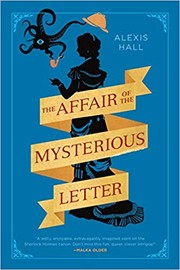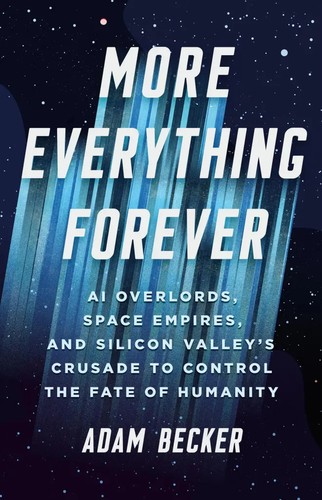It was available! Why not.
Reviews and Comments
Interests: climate, science, sci-fi, fantasy, LGBTQIA+, history, anarchism, anti-racism, labor politics
This link opens in a pop-up window
Sally Strange started reading Stalin and the Scientists by Simon Ings
Sally Strange started reading Heavenly Tyrant by Xiran Jay Zhao (Iron Widow, #2)
Sally Strange commented on The Big Roads by Earl Swift
Not sure if I'm going to finish this - at least, I may have to take a break to let someone else check it out if I don't finish it during the next ten days.
If it were more engrossing, that would be no problem, but it's a book about government bureaucrats bureaucrat-ing. That it has held my attention so much up till now is a testament to how well-researched and well-written it is.
Sally Strange wants to read More and more and more by Jean-Baptiste Fressoz
"It has become habitual to think of our relationship with energy as one of transition: with wood superseded by coal, coal by oil, oil by nuclear and then at some future point all replaced by green sources. Jean-Baptiste Fressoz’s devastating but unnervingly entertaining book shows what an extraordinary delusion this is. Far from the industrial era passing through a series of transformations, each new phase has in practice remained almost wholly entangled with the previous one. Indeed the very idea of transition turns out to be untrue.
The author shares the same acute anxiety about the need for a green transition as the rest of us, but shows how, disastrously, our industrial history has in fact been based on symbiosis, with each major energy source feeding off the others. Using a fascinating array of examples, Fressoz describes how we have gorged on all forms of energy – with whole forests …
"It has become habitual to think of our relationship with energy as one of transition: with wood superseded by coal, coal by oil, oil by nuclear and then at some future point all replaced by green sources. Jean-Baptiste Fressoz’s devastating but unnervingly entertaining book shows what an extraordinary delusion this is. Far from the industrial era passing through a series of transformations, each new phase has in practice remained almost wholly entangled with the previous one. Indeed the very idea of transition turns out to be untrue.
The author shares the same acute anxiety about the need for a green transition as the rest of us, but shows how, disastrously, our industrial history has in fact been based on symbiosis, with each major energy source feeding off the others. Using a fascinating array of examples, Fressoz describes how we have gorged on all forms of energy – with whole forests needed to prop up coal mines, coal remaining central to the creation of innumerable new products and oil still central to our lives. The world now burns more wood and coal than ever before. This book reveals an uncomfortable truth: ‘transition’ was originally itself promoted by energy companies, not as a genuine plan, but as a means to put off any meaningful change. More and More and More forces its readers to understand the modern world in all its voracious reality, and the true nature of the challenges heading our way."
Degrowth baby
Sally Strange started reading Waste Tide by Chen Qiufan
Queer Steampunk Fantasy Sherlock Holmes
5 stars
I swear every chapter of this could have been a full book on its own. The title describes the grand vision, but the details make it work. For example Shaharazade Haas' and John Wyndham's (the initials give away their roles) trip to an alternate dimension with definite 1984 vibes, except instead of Big Brother, there's a mind-warping demon-king who is mostly glimpsed in dreams. Haas is deliciously anarchic while Wyndham is adorably prudish yet nonjudgmental. His narration is frequently hilarious and also touching at times. It is a bit pompous and overwrought, but that fits with his character.
Everyone is gay and it's no big deal--the mystery our MCs are trying to solve involves the fate of an engagement between two women, whose main struggle is not whether society will accept their orientation, but whether their relationship will survive murder attempts by exes and/or the stultifying confines of a marriage …
I swear every chapter of this could have been a full book on its own. The title describes the grand vision, but the details make it work. For example Shaharazade Haas' and John Wyndham's (the initials give away their roles) trip to an alternate dimension with definite 1984 vibes, except instead of Big Brother, there's a mind-warping demon-king who is mostly glimpsed in dreams. Haas is deliciously anarchic while Wyndham is adorably prudish yet nonjudgmental. His narration is frequently hilarious and also touching at times. It is a bit pompous and overwrought, but that fits with his character.
Everyone is gay and it's no big deal--the mystery our MCs are trying to solve involves the fate of an engagement between two women, whose main struggle is not whether society will accept their orientation, but whether their relationship will survive murder attempts by exes and/or the stultifying confines of a marriage kept within the bounds of merchant respectability.
I said "No complaints" in my comment upon finishing the book, but that's not quite true: I wish there were sequels. I suppose I'll just have to keep reading the adventures of Kate Kane, Paranormal Investigator.
Sally Strange finished reading The Affair of the Mysterious Letter by Alexis Hall
Sally Strange started reading The Affair of the Mysterious Letter by Alexis Hall
What if Sherlock Holmes was a bad bitch who was also gay and a sorceress? And Watson was a prudish gay man? Then they'd be Shaharazade Haas and John Wyndham in this book. Their housekeeper is a sentient swarm of insects. Wyndham's war injury is from a time traveling bullet that sometimes manifests as the memory of feeling the pain during a time in his life long before he ever went to war.
Sally Strange reviewed Interstellar MegaChef by Lavanya Lakshminarayan (Flavour Hacker, #1)
True culinary masterpiece of speculative fiction
5 stars
Saraswati Kaveri and Serenity Ko have a chance encounter in a flying cab. Saras is newly arrived on Primus from backwater Earth and is hoping to use her entry in the Interstellar Megachef reality competition show to get revenge on her doubting family back home for destroying her career as a chef. Serenity Ko is fleeing a riot she caused by being a rich asshole trying to get a bunch of poor strangers to celebrate her achievements as an "aesthete savant" in anticipation of a big promotion at her job as a producer of sims (simulated immersive reality). Both of their plans go to hell within short order. Lavanya Lakshminarayan thus sets the stage for them to reunite, gradually, as they look for ways to get back on their feet. Their eventual professional collaboration, combining Saras' mastery of flavor and art and Ko's knowledge of technology and culture, provides a …
Saraswati Kaveri and Serenity Ko have a chance encounter in a flying cab. Saras is newly arrived on Primus from backwater Earth and is hoping to use her entry in the Interstellar Megachef reality competition show to get revenge on her doubting family back home for destroying her career as a chef. Serenity Ko is fleeing a riot she caused by being a rich asshole trying to get a bunch of poor strangers to celebrate her achievements as an "aesthete savant" in anticipation of a big promotion at her job as a producer of sims (simulated immersive reality). Both of their plans go to hell within short order. Lavanya Lakshminarayan thus sets the stage for them to reunite, gradually, as they look for ways to get back on their feet. Their eventual professional collaboration, combining Saras' mastery of flavor and art and Ko's knowledge of technology and culture, provides a unique window into the ways food shapes culture and culture creates food. On Primus, Ko's homeworld, which is considered the center of human civilization, nothing is fried or grilled or broiled - Primians disdain the "violence" of cooking over an open flame and chopping up whole plants in favor of extracted flavor essences and vat-grown proteins in the form of gelled layers and refined soups. On Earth and elsewhere, people deride the Primians' high-falutin' obsession with distancing themselves from the concept of consuming anything from the natural world. There's even a religious sect on Primus whose ultimate goal is to transform themselves into beings who can sustain themselves entirely on starlight. For now they settle for photovoltaic skin mods and eating less.
There is so much fizzy fun, witty banter, colorful characters, and mouth-watering descriptions of luscious food, that you could almost miss the fact that there are serious topics being discussed too--cultural imperialism, environmental exploitation, corruption, and humanity's eternal struggle between convenience and doing the right thing. The stakes seem low for the most part, but we are talking about food! The thing everyone needs to survive.
I loved every minute of this and was sad when I finished it so quickly. There is a sequel, "Interstellar Feast," whose description offers many spoilers that I have avoided. I am eager to read it, even if I have to abandon the audiobook format that is my favorite because no audio version exists as of yet.
Sally Strange finished reading Interstellar MegaChef by Lavanya Lakshminarayan (Flavour Hacker, #1)
Sally Strange commented on Interstellar MegaChef by Lavanya Lakshminarayan (Flavour Hacker, #1)
I really, really love this book. The beginning was rather slow, as multiple characters whose relevance to the main plot was unclear were introduced, but now the threads are starting to draw together. And the slow burn was worth it.









